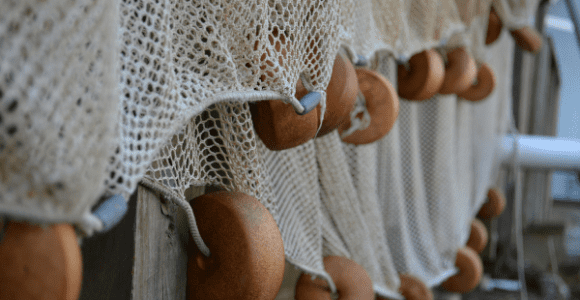Welcome readers! Please subscribe through the button on the right.
(Read this series from the beginning at Part 1 and Part 2.)

Remember these disciples as fishermen first. It’s much easier to walk away from fishing for fish when you’re failing. It would be immensely harder to walk away from fishing for fish and embrace fishing for people when fishing for fish has just resulted in the largest haul you have ever seen. What did that night meant for their profit? In this story, Jesus calls them to walk away from their profits to take up the justice work spoken of by the Hebrew prophets.
Now, as then, Jesus calls his disciples to place people before profit—especially people who are being harmed, marginalized, excluded, and killed. This makes me think of our current capitalist system, which places profit above every other priority. I think of ministries and Jesus followers who have chosen to stand up for people being harmed rather than remaining silent and preserving their donor base. When I consider the communities being harmed, I think of those Christians who suffer great loss for joining the voices saying “Black Lives Matter,” or for celebrating LGBTQ folks rather than just including or affirming them; who advocate for the egalitarian treatment of women. I’ve had speaking events cancelled because of my solidarity with these and other communities. One event in the Dakotas was even cancelled because I blogged in solidarity with those speaking out at Standing Rock for both environmental justice and in solidarity with indigenous sovereignty. One of the church’s wealthiest donors worked for a pipeline company and had requested I not be allowed to come to their church. Because the church didn’t want to risk that person’s financial support, they canceled me. I’m still in awe that they were so transparent with me on the phone about their motive.
What would it mean for Jesus’ followers today to put people before profits, even and especially when the fishing is good, and to take up fishing for people as Jeremiah, Amos, and Ezekiel would have defined it?
Speaking of those who do harm within their positions of power, Jeremiah reads:
“But now I will send for many fishermen,” declares the LORD, “and they will catch them. After that I will send for many hunters, and they will hunt them down on every mountain and hill and from the crevices of the rocks. (Jeremiah 16:16)
Speaking of those who “oppress the poor and crush the needy,” Amos reads:
The Sovereign LORD has sworn by his holiness: “The time will surely come when you will be taken away with hooks, the last of you with fishhooks.” (Amos 4:2)
Speaking of the abusive Pharaoh, king of Egypt, Ezekiel reads:
In the tenth year, in the tenth month on the twelfth day, the word of the LORD came to me: “Son of man, set your face against Pharaoh king of Egypt and prophesy against him and against all Egypt. Speak to him and say: ‘This is what the Sovereign LORD says:
‘“I am against you, Pharaoh king of Egypt,
you great monster lying among your streams.
You say, “The Nile belongs to me;
I made it for myself.”
But I will put hooks in your jaws
and make the fish of your streams stick to your scales.
I will pull you out from among your streams,
with all the fish sticking to your scales.
I will leave you in the desert,
you and all the fish of your streams.
You will fall on the open field
and not be gathered or picked up.
I will give you as food
to the beasts of the earth and the birds of the sky.
Then all who live in Egypt will know that I am the LORD. (Ezekiel 29:1-6)
This way of understanding what it means to fish for powerful people who do harm resonates with me.
How are these stories in the spirit of liberation calling you to go fishing today?














